Returning to Rotterdam after nearly five years (during which we lived through a global pandemic) has unleashed a flood of memories and desires. From 2017 to 2019, I frequently travelled to The Netherlands to teach and work on my PhD. In hindsight, these 2-3 week interludes from routine life were vital and transformative, teaching me how to be alone, enabling deep work in a way I had never done before, and fostering an appreciation for how much good infrastructure improves productivity and a sense of well-being. Allow me to elaborate.
I learned to be alone
In a recently penned letter to her children, Substacker Sanobar Sanah wrote, “It is contentment and solitude we must aspire to. I hope you turn to yourselves out of choice, not when the world has failed you.”
Beyond the sense of liberation I felt at being away from the immediate pressures of motherhood, a demanding job, and, well, life, my PhD stints taught me how to be truly alone, perhaps for the first time in my life. A month spent in Paris in 2017 had been a teaser, but during these PhD sojourns, I learned to be a different person altogether.
I experimented a lot with routine, discovered that I have extra focus while working in cafes, and realised that taking walks between work stints enhances my productivity. I was a more relaxed person on my own, drinking an occasional glass of wine alone or cooking myself a decent meal, reading in parks when the weather permitted, and watching films solo. I made new friends and learned to strike up deep conversations with strangers, something I keep trying back home, with mixed results. The switch between these different kinds of activities - deep work, soaking in the outdoors, consuming entertainment, and visiting people I wanted to see - worked very well for me. In a way, I created a different world for myself. A world in which I had so much more control over my time. I missed home terribly, especially the children, but I savoured every moment of it.
I think I should take Sanobar’s advice and make a concerted effort to recreate this kind of solitude - with its unique rhythms and cadences - even in my people- and task-filled life back home. I certainly owe it to myself to feel in control, to enjoy my own company and to have practised routines for calmness and productivity. Why does life back home always feel like it is on autopilot and that events unfold without much input from me? I’m still figuring this one out!
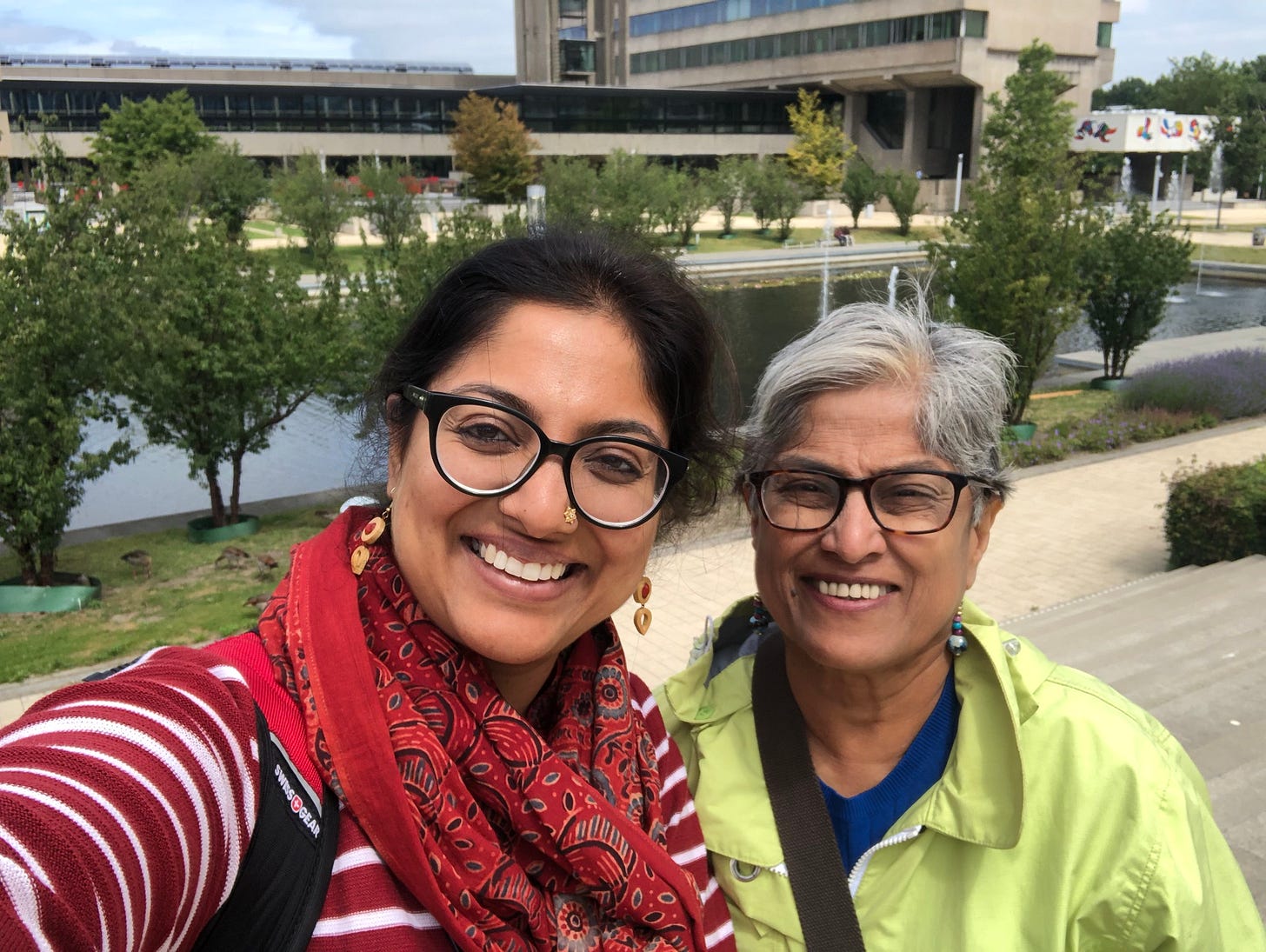
I discovered my own ‘deep work’ hacks
My PhD visits to the Netherlands always included an evening with Damini, my friend Arti’s daughter, and my friend, too. After all, we were both students in a strange land, figuring out Dutch quirks and adjusting to Dutch academic expectations!
We often discussed our issues with time management and our strategies for meeting deadlines or dealing with negative feedback. I still remember my bewilderment at Damini’s description of the various productivity apps she used on her phone. I had no such sophisticated hacks, but I knew that a PhD required far more concentration than anything I had done in life thus far.
Enhancing my capacity for deep work became a serious obsession during these stints in the Netherlands. Identifying what was relevant from large volumes of literature needed a different type of skill from decoding dense and obtuse academic language. Like all PhD students, I particularly struggled with these. But I also discovered my superpower: intuition. Instead of trying too hard and digging too deep, I found myself leaning into emotions and instincts about the words I was engaging with. Language came to my rescue when theory and argumentation proved too taxing. It helped me keep the imposter syndrome at bay long enough for me to find my footing in this new world of academic thinking. It is still a work in progress, but I am less inhibited about engaging with dense texts now.
It’s the same with writing. Plugging out of my regular routine freed up time to write. I produced reams of poorly written academic text and made copious handwritten notes that I never looked at again. But it all strengthened the writing muscle I needed to produce better quality work later. Developing the ability to simply write about something without cluttering my mind with self-doubt is the best gift I have given myself. I worked hard at it during these initial PhD stints. I am still at it, and being a lifelong student of the craft of writing is turning out to be quite gratifying!

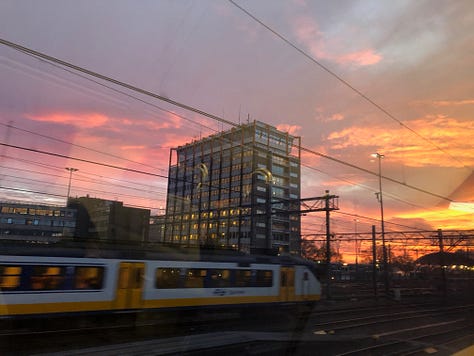
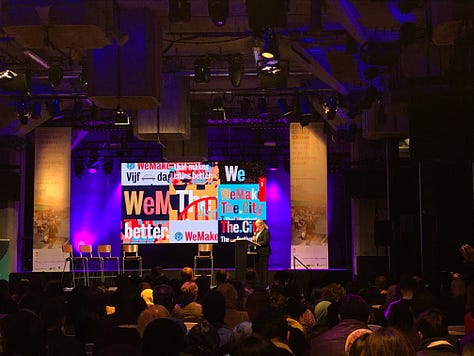
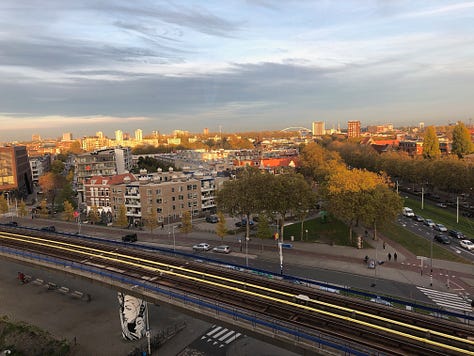
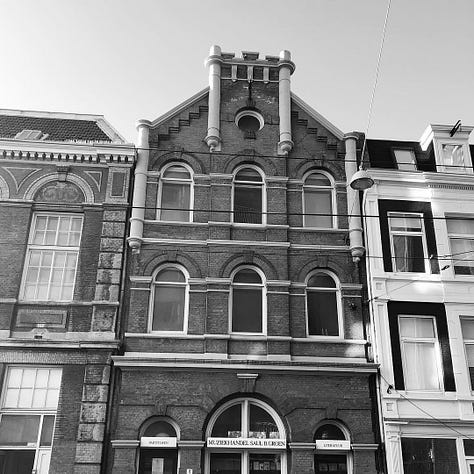
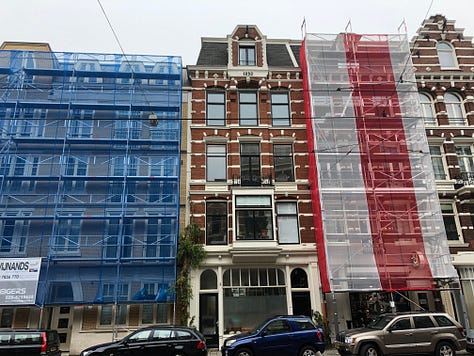
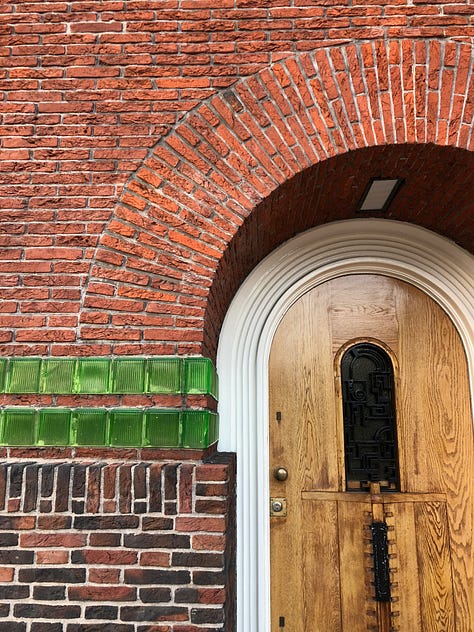
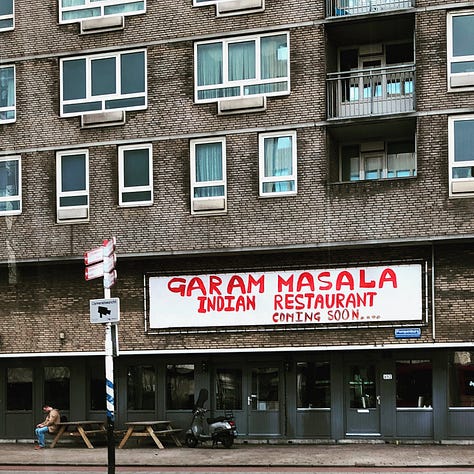
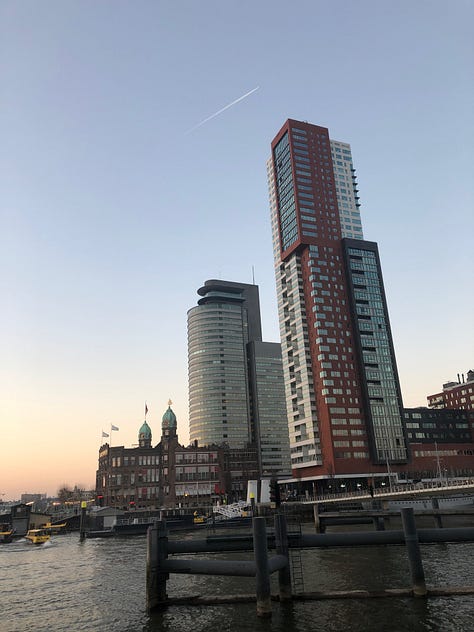
Where are the infrastructures for well-being?
Trained as an architect and urban planner, I know that the Netherlands has always been synonymous with cycling. It never ceased to amaze me how effectively this country has consciously moved away from an automobile-dependent culture. But spending time here, I could appreciate more fully how much thought had gone into creating beautiful and easy environments for work and living. Of course, this is a resource-rich country, and of course, there are problems here, too, but I cannot miss the simple fact that when basics like transport systems, footpaths, lighting, photocopy machines and escalators worked with a reasonable amount of reliability, it made life a lot easier.
In the university, my experience was enhanced by simple things like a good coffee machine with a ‘hot chocolate’ option (especially when it was minus 4 degrees Celsius out there!) or helpful staff that never told you your problems were too trivial for their attention. Access to library facilities, technical equipment and software and amazing public spaces within campus made learning a hassle-free experience. As a woman, just taking long walks through the city - especially the little parks and urban forests - without feeling fear was liberating beyond my imagination. Typical Dutch aesthetic touches everywhere - a vase on a windowsill, a bright piece of furniture in an austere room, a giant sculpture surging out of the river - enhanced the quality of indoor and outdoor spaces alike.
I know it is unfair to compare this with the daily struggles of life back home, where my commute from Gurgaon to Delhi consumes much of my bandwidth, but it is worth reiterating that comprehensive infrastructure upgrades are essential for productivity and, therefore must become a priority for countries like India. Somehow, we have to find cost-effective ways to revamp our cities, to make lives better now, and to protect ourselves from the climate-related stresses that are inevitable in the near future.
Looking back, thinking ahead
I am a bit sad that I will not have a solid reason to come back often to the Netherlands. In my five years away, I have retained a strong emotional link to my university through interactions with my advisors and PhD friends. Extended family members who live in the Netherlands, without whose support the PhD would have been tougher to do, will be reason enough to visit again. But I will miss these amazing solo trips full of intense soul-searching, giant learning leaps, and sensory enrichment! This phase of my life may end, but I will always be grateful for the many wonderful new pathways it has opened for personal and professional improvement.

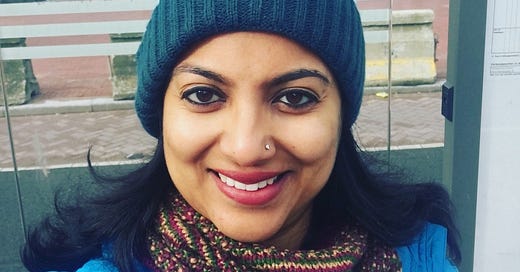





Congratulations Dr. Naik! I love what you write about deep work and your insights on urban well-being. Rediscovering one self in foreign land can be the best gift to give oneself. It takes courage and grace!
Congratulations, Dr.Naik! As always, your writing is most inspiring. The beauty of occasional solitude!